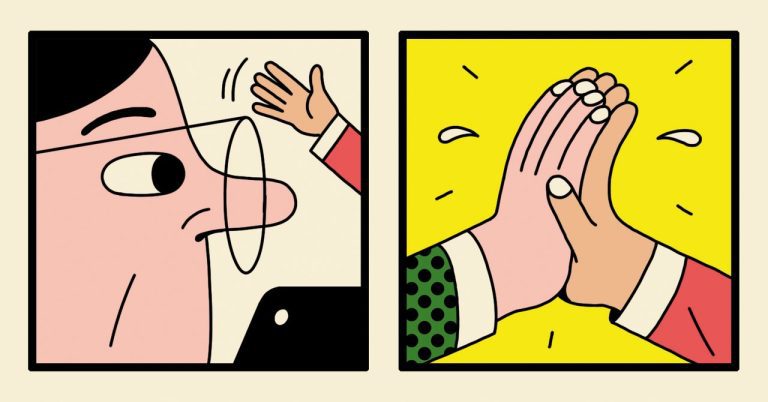Next year will mark a turning point when people around the world finally recognize that their health is not just physical and mental, but also social. Social health focuses on relationships; it’s the dimension of your overall health and well-being that comes from connections to your family, friends, colleagues, and community.
Attention to social health has accelerated in recent years. In particular, the Covid-19 pandemic has focused attention on our social lives and their decline. According to a Meta-Gallup survey, 24 percent of people all over the world feel alone. THE Barometer of belonging survey by the American Immigration Council also found that 74 percent of Americans do not feel connected to their local community.
This feeling correlates with a change in behavior: today, people spend on average 24 hours more alone and 20 hours less with friends each month compared to twenty years ago; participation in community groups, membership in local clubs, and membership in faith-based organizations declined; and the percentage of single-person households has more than doubled since 1960. Another survey found a surprising decline in the number of close friends adults have: in 1990, only 3 percent of Americans had no close friends; today, that figure is more than 12 percent.
This crisis has spurred initiatives such as that of the United States Surgeon General who made loneliness a public health priority, and that of the World Health Organization which created a global commission focused on human relationships.
However, the majority of people still underestimate how vital relationships are to their longevity. In fact, social health is linked to a 50 percent increase in terms of longevity, making it as important to our lifespan as avoiding smoking, combating obesity and exercising regularly. We urgently need to prioritize and invest in social health. Here’s how.
Make social health a priority
To be physically healthy, you nourish your body by striving to walk 10,000 steps a day or sleep eight hours a night, for example. To be mentally healthy, you can meditate daily or go to therapy every week. Being socially healthy requires similar intention and consistency. Try the 5-3-1 guideline: Try to interact with five different people each week, maintain at least three close relationships, and spend an hour a day connecting, preferably face-to-face. Just as we each need to consume a different number of calories, these numbers may be higher or lower than what you personally thrive on; use them as a starting point to explore what social health looks like for you.
Start small
Simple actions can make a significant difference to your social health. For example, studies have shown that people tend to underestimate how much sending a kind message via text or email will be appreciated, and even short phone calls several times a week can reduce measurable way the feeling of loneliness. So try connecting first: instead of scrolling through headlines while waiting in line or putting on a podcast on the go, text a photo to a friend or call a family member to chat. Unlike taking care of your physical and mental health, taking care of your social health also directly benefits the people you come in contact with.
Think big
On the heels of the boom in the mental health industry, the next health frontier in our economy will be centered on social health. Entrepreneurs and investors are already showing interest, with innovations such as social gyms, friendship coaches and AI companions becoming increasingly common. But whatever your profession, you have the opportunity to shape a more socially healthy future. For example, educators can teach soft skills in the classroom; doctors can screen for isolation during appointments; architects can incorporate gathering spaces into their designs; municipal officials can support local community builders; and employers can create connected work cultures.
Stretch your social muscles
Depending on your life stage and specific circumstances (for example, if you recently moved to a new city and need to create a community in your new home, or if you work remotely and crave more ‘face-to-face interactions, for example), you may need to try harder. your social muscles to expand your social network. But how? Research shows that friendships arise from regular contact and shared experiences: the more time you spend with someone, the closer you become. One study, for example, tracked students’ social networks for a year and a half as they transitioned from high school to college, revealing that new friendships disappeared unless they had regular communication and made activities together. Similarly, another study found that for an adult who recently moved to a new city, it takes at least 50 hours to turn a new acquaintance into a friend; the more time we spend together, the closer the friendship becomes.
Deepen existing relationships
Stretching is about increasing the amount of connection in your life; Toning is about improving the quality of the connection. It requires curiosity and vulnerability. In a meta-analysis, researchers concluded that people like you more when you confide in them – and you like the people you confide in more. Choose the right context: Disclosure of personal information is viewed favorably by people you already know and by new acquaintances in one-on-one conversations, but not necessarily by strangers in public places. Choose depth over breadth: sharing something intimate leads to more appreciation than sharing a lot of information. A survey of more than 4,600 people in the United States, India and Japan showed that people across cultures found interactions more meaningful when they went beyond small talk to provide value through an emotional connection, an exchange of knowledge or practical help.


